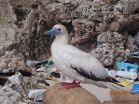In September's Physics World: The secret life of scientific ideas...
Many of the most memorable stories in the history of science revolve around the conscious realization of an idea -- the "Eureka!" moment -- but what triggers these moments?
2015-09-01
(Press-News.org) Many of the most memorable stories in the history of science revolve around the conscious realization of an idea - the "Eureka!" moment. But what triggers these moments? Is there always some serendipitous event preceding a sudden epiphany, such as when Isaac Newton famously figured out gravity when he saw a falling apple?
Writing in September's Physics World, Vitor Cardoso talks about how these questions led him on a quest of discovery through the web-based project The Birth of an Idea, which he co-founded with artist Ana Souse Carvalho.
"Ana and I had been talking about the similarities between creativity in art and science," writes Cardoso. "We hit upon the idea of creating a repository of essays written by scientists describing the genesis of their ideas." To date, they have had 64 essays in total, by contributors from around the world and from a wide range of research fields.
As a physicist himself, Cardoso didn't just want the tales of breakthrough discoveries, but also stories of the trivial and the ordinary, the small victories and the long struggles. "As a physicist, I am well aware that this is the territory where most of us toil," he writes.
Not all idea-generation is as exotic or glamorous as you might think. "We hear from colleagues that they have their best ideas walking home or in bed or in the shower," says Cordoso, "and we can't help but nod in agreement while reading Masaru Shibata when he tells us, with the concision of a haiku: 'In my experience, ideas often come to me when I am taking a bath. Thus, I recommend taking a bath every day.' "
But figuring out a tough physics problem isn't always as easy as taking a bath. In the article, Cardoso relays the respondents' stories of frustration and agitation at dealing with problems. He also reveals how most of them do not fit the "lone genius" stereotype but instead say that working in groups and talking to other colleagues is truly the source of most ideas - a kind of "spontaneous brainstorming".
"The image of the lonely genius with her or his 'Aha!' moment is an illusion," wrote one contributor to the project, Nicolas Yunes. "The birth of an idea is much more of a community activity than we sometimes care to acknowledge."
Vitor Cardoso is a theoretical physicist working on black-hole physics at the University of Lisbon in Portugal and a visiting fellow at the Perimeter Institute for Theoretical Physics in Waterloo, Canada.
The article includes two short essays by physics researcher Pedro Figueira at the Centro de Astrofísica da Universidade do Porto, Portugal, and professor of physics Djordje Minic at Virginia Tech, US, about how their ideas emerge.
INFORMATION:
Also in this month's Physics World:
The search goes on - How a new upgrade to the giant LIGO detectors in the US could narrow the hunt for gravitational waves
What's in a logo? - The symbols labs and facilities use to represent physics and whether one image can sum up the subject
The new issue of Physics World can be read in our digital edition from 1 September at http://live.iop-pp01.agh.sleek.net/physicsworld/reader or via the Physics World app. Membership of the Institute of Physics is required for access to articles.
This article will also be freely available from 3 September at http://physicsworld.com/cws/article/indepth/2015/sep/03/the-secret-life-of-scientific-ideas
Notes for editors:
Please mention Physics World as the source of these items and, if publishing online, please include a hyperlink to: http://physicsworld.com
1. Physics World is the international monthly magazine published by the Institute of Physics. For further information or details of its editorial programme, please contact the editor, Dr Matin Durrani, tel +44 (0)117 930 1002. The magazine's website physicsworld.com is updated regularly and contains daily physics news and regular audio and video content. Visit http://physicsworld.com.
2. For picture and a copy of the article reviewed here contact Steve Pritchard, IOP Publishing senior press officer, tel +44 (0) 117 930 1032, e-mail steve.pritchard@iop.org
3. The Institute of Physics is a leading scientific society. We are a charitable organisation with a worldwide membership of more than 50,000, working together to advance physics education, research and application. We engage with policymakers and the general public to develop awareness and understanding of the value of physics and, through IOP Publishing, we are world leaders in professional scientific communications. In September 2013 we launched our first fundraising campaign, Opportunity Physics, which offers you the chance to support the work that we do.
ELSE PRESS RELEASES FROM THIS DATE:
2015-09-01
Women living in poor areas in the UK are almost twice as likely to develop clinical anxiety as women in richer areas. However, whether men lived in poorer or richer areas made no difference to their levels of generalised anxiety disorder (GAD). These are amongst the main findings of a major survey on how socio-economic factors affect mental health in the UK.
Generalised anxiety disorder is one of the most common mental health conditions in modern society, but little objective work has taken place to show the factors in society which can lead to the development of anxiety. ...
2015-09-01
How do you convince someone with schizophrenia or other psychotic disorders that they are ill if they don't want to believe it? If you don't recognize that you are ill, you may resist treatment, but is there something which causes this lack of awareness? Awareness of illness, also known as 'insight', is a serious problem in the treatment of psychotic patients. Now work being presented at the ECNP Congress in Amsterdam investigates whether concentrations of a marker of brain cell dysfunction are associated with impaired insight.
Past studies have indicated that an area ...
2015-08-31
Men with relatively unaggressive prostate tumors and whose disease is carefully monitored by urologists are unlikely to develop metastatic prostate cancer or die of their cancers, according to results of a study by researchers at the Brady Urological Institute at Johns Hopkins, who analyzed survival statistics up to 15 years.
Specifically, the researchers report, just two of 1,298 men enrolled over the past 20 years in a so-called active surveillance program at Johns Hopkins died of prostate cancer, and three developed metastatic disease.
"Our study should reassure ...
2015-08-31
Lincoln, Neb., Aug. 31, 2015 -- Using an enormous X-ray laser -- one of only two such machines on Earth -- University of Nebraska-Lincoln physicist Matthias Fuchs and scientists from around the world beat formidable odds to observe one of the most fundamental interactions between X-rays and matter.
The findings can aid future studies and may lead to novel new ways to diagnose matter in the future.
Fuchs and his colleagues induced two X-ray photons to simultaneously collide with a single atom, which converts them into a single higher-energetic X-ray photon. It's a phenomenon ...
2015-08-31
New York, NY--August 31, 2015--With the rise of CO2 in Earth's atmosphere, understanding the climate of tropical forests--the Amazon in particular--has become a critical research area. A recent NASA study showed that these regions are the biggest terrestrial carbon dioxide sinks on our planet, absorbing 1.4 billion metric tons of CO2 out of a total global terrestrial absorption of 2.5 billion. To simulate the tropical climate to learn more about its processes, climate scientists have typically been relying on general circulation models (GCMs) to simulate the tropical climate. ...
2015-08-31
Longer, less frequent climate fluctuations may be contributing to abrupt and unexplained ecosystem shifts in the North Pacific, according to a study by the University of Exeter.
Researchers have long been puzzled by two rapid and widespread changes in the abundance and distribution of North Pacific plankton and fish species that impacted the region's economically important salmon fisheries. In 1977, and again in 1989, the number of salmon in some areas plummeted, while it increased in other areas. These events have been dubbed regime shifts by researchers.
Now, in ...
2015-08-31
A new study led by a UC San Francisco sleep researcher supports what parents have been saying for centuries: to avoid getting sick, be sure to get enough sleep.
The team, which included researchers at Carnegie Mellon University and University of Pittsburgh Medical Center, found that people who sleep six hours a night or less are four times more likely to catch a cold when exposed to the virus, compared to those who spend more than seven hours a night in slumber land.
This is the first study to use objective sleep measures to connect people's natural sleep habits and ...
2015-08-31
Multiple System Atrophy (MSA), a neurodegenerative disorder with similarities to Parkinson's disease, is caused by a newly discovered type of prion, akin to the misfolded proteins involved in incurable progressive brain diseases such Creutzfeldt-Jakob Disease (CJD), according to two new research papers led by scientists at UC San Francisco.
The findings suggest new approaches to developing treatments for MSA, which currently has no cure, but also raise a potential concern for clinicians or scientists who come in contact with MSA tissue.
The new findings mark the first ...
2015-08-31
Scientists have long associated sufficient sleep with good health. Now they've confirmed it.
In 2009, Carnegie Mellon University's Sheldon Cohen found for the first time that insufficient sleep is associated with a greater likelihood of catching a cold. To do this, Cohen, who has spent years exploring psychological factors contributing to illness, assessed participants self-reported sleep duration and efficiency levels and then exposed them to a common cold virus.
Now, Cohen, the Robert E. Doherty University Professor of Psychology in the Dietrich College of Humanities ...
2015-08-31
Researchers from CSIRO and Imperial College London have assessed how widespread the threat of plastic is for the world's seabirds, including albatrosses, shearwaters and penguins, and found the majority of seabird species have plastic in their gut.
The study, led by Dr Chris Wilcox with co-authors Dr Denise Hardesty and Dr Erik van Sebille and published today in the journal PNAS, found that nearly 60 per cent of all seabird species have plastic in their gut.
Based on analysis of published studies since the early 1960s, the researchers found that plastic is increasingly ...
LAST 30 PRESS RELEASES:
[Press-News.org] In September's Physics World: The secret life of scientific ideas...
Many of the most memorable stories in the history of science revolve around the conscious realization of an idea -- the "Eureka!" moment -- but what triggers these moments?

